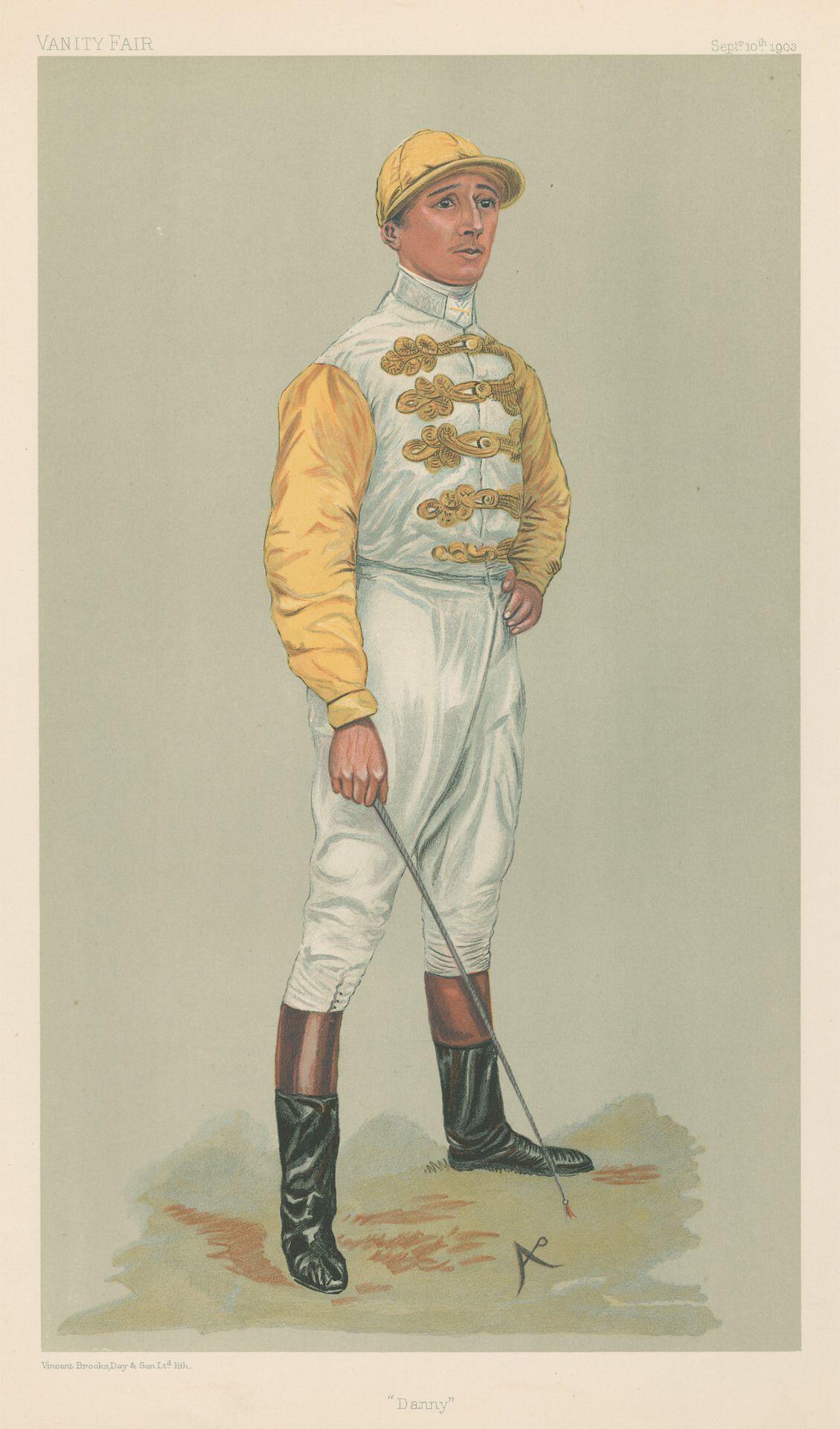Danny Maher

Born in Hartford, Connecticut of Irish descent, Daniel Aloysius Maher weighed only 4st 9lb when beginning his race-riding career. He rode his first winner at the age of 14 on a horse named Phoebus at Providence, in Rhode Island. Three years later, in 1898, he was America’s champion jockey with 191 winners.
Maher was one of several Americans to make their way to Europe at the turn of the 20th century. He joined forces with Newmarket trainer George Blackwell, for whom he won the 1901 1,000 Guineas on Sir James Miller’s Aida and, two years later, the Derby and St Leger on the same owner’s Rock Sand.
He became first jockey to Lord Rosebery in 1905 and won that year’s Derby for him on Cicero. He won it again in 1906 on Major Eustace Loder’s Spearmint and, for good measure, also captured that year’s Oaks on Lord Derby’s filly Keystone II. He won the first of his two British champion jockey titles in 1908 with 139 winners.
In 1909, Maher won the Eclipse Stakes and the St Leger on the Alec Taylor-trained Bayardo, owned by Alfred Cox, who raced under the nom de plume of ‘Mr Fairie’. The following season he rode Bayardo to victory in the Ascot Gold Cup but was criticised for overdoing waiting tactics on him in the Goodwood Cup, for which he started at 20-1 on and failed to peg back the pacemaker Magic.
Maher rode the last of his nine classic winners on the American-bred Sweeper II in the 1912 2,000 Guineas. However, by the time he was crowned Britain’s champion jockey for the second time in 1913, the rigours of excessive wasting had badly affected his health. He was weak and also showed early symptoms of tuberculosis. With the outbreak of war in 1914, Maher went back to America but returned the following year and attempted to resume his career.
His first ride for almost two years, Sun Yat, at Newmarket on 16th September 1915, was greeted by racegoers’ rousing cheers, to which Maher touched his cap in acknowledgement.
But Sun Yat finished well beaten. Maher shook visibly as he slid from the saddle, head resting on the horse’s flanks before unbuckling the girths.
He never rode again. Fourteen months later, in November 1916, Maher died of tuberculosis, aged 35. He had ridden a total of 1,421 winners in Britain in addition to over 350 in America.

